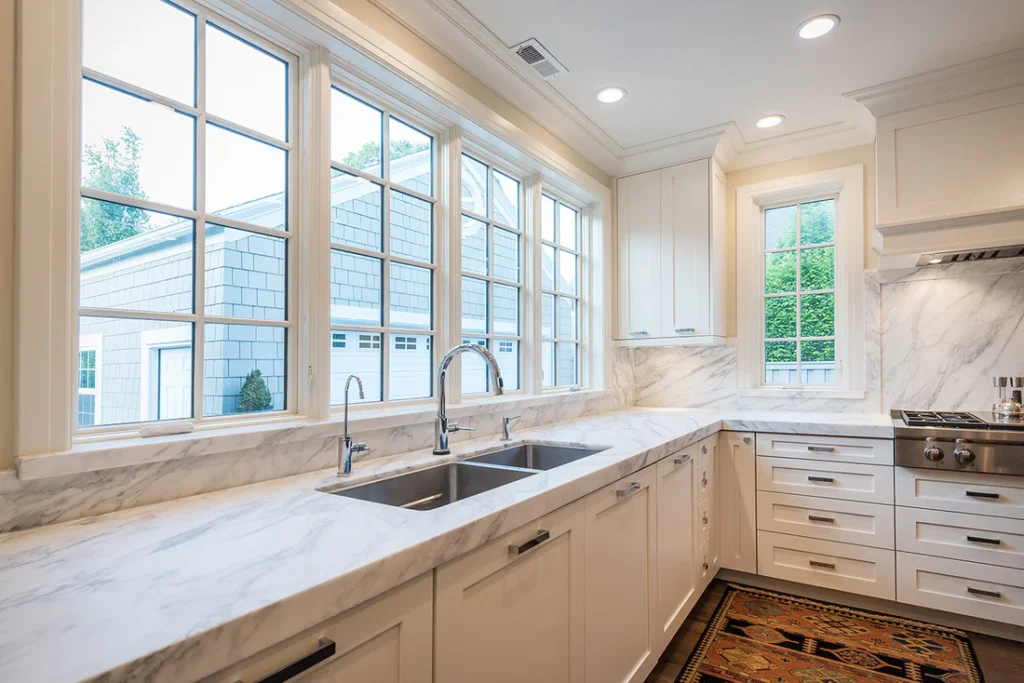
Regular plumbing maintenance is important because it prevents costly repairs, ensures water efficiency, protects property from damage, maintains health and hygiene by preventing water contamination, and enhances overall comfort and convenience in your home or building.
There are a few things you can do to keep an eye on your plumbing system to ensure you do not get surprised.
- Inspect for Leaks Regularly
Make it a habit to check for leaks throughout your home. Even minor leaks can waste a significant amount of water and increase your water bills.
For instance, a leaky faucet can waste up to eight gallons of water daily, while a running toilet might waste up to 200 gallons a day. Appliances such as garbage disposals, refrigerators, dishwashers, water heaters, and washing machines are potential leak sources that could lead to costly repairs.
Be attentive to signs like reduced water pressure or unexpected spikes in water usage, which may indicate hidden leaks. If you suspect a leak but can’t pinpoint its location, contact a plumber. Undetected leaks can cause structural damage and attract pests like termites and carpenter ants.
- Address Slow Drains Promptly
Slow-moving drains are often caused by a buildup of soap scum and hair. To prevent a drain from becoming fully blocked, try these affordable solutions:
- Clean the stopper by removing and washing it.
- Use a mixture of baking soda and vinegar to tackle sluggish drains.
If these methods don’t resolve the issue, there may be a deeper blockage requiring professional attention.
- Be Mindful of What Goes Down Your Drains
Narrow home drains can easily become clogged with everyday items like hair, soap, food scraps, and grease. Using improper toilet paper or excessive amounts can also clog older pipes.
To prevent clogs, use inexpensive mesh covers for sinks and bathtubs to catch hair and other debris.
- Avoid Using Your Toilet as a Trash Can
Toilets are designed for human waste and toilet paper only. Flushing non-flushable items, even those labeled as such, can lead to clogs and pipe damage.
Items like facial tissues, paper towels, feminine hygiene products, and diapers should always be disposed of in the trash.
- Steer Clear of Chemical Drain Cleaners
Chemical drain cleaners might offer a temporary fix but rarely fully clear a clog. They often contain harsh chemicals that can be dangerous to both people and pipes.
Instead, use a plunger or drain snake for clogs. If these methods fail, contact a professional plumber to address the issue without risking damage to your pipes.
- Don’t Overload Your Garbage Disposal
Despite their name, garbage disposals aren’t meant for all types of waste. Avoid putting grease, oils, pasta, rice, fibrous vegetables, eggshells, or coffee grounds down the disposal.
Dispose of only small amounts of food scraps and run cold water while operating the disposal to prevent clogs and backups.
- Insulate Your Pipes
Frozen pipes aren’t just a concern in cold climates; homes in warmer areas may also face risks if pipes aren’t adequately insulated.
Pipes in unheated areas like basements, attics, and crawl spaces need extra insulation. Pipe insulation sleeves are an affordable option to protect against freezing. Ensure that inground sprinklers, pools, and hot tubs are also properly winterized.
- Monitor Your Water Pressure
Ideal home water pressure ranges between 40 to 50 psi. Excessively high pressure can strain your plumbing system, leading to burst pipes, while low pressure might indicate a leak.
Use a water pressure gauge to test your home’s pressure. If it’s too high, a professional plumber can install a regulator to manage it effectively.
- Inspect Exposed Pipes Regularly
Pipes endure wear and tear over time, and damage often develops gradually. Avoid hanging items from exposed pipes, as this can weaken them.
Regularly check for signs of damage such as rust, warping, or moisture on pipes. Promptly address any issues with a plumber to prevent further damage.
- Know How to Turn Off Your Water
In case of a leak or emergency, knowing how to shut off your water supply quickly is crucial. Major issues like overflowing toilets or burst hoses can cause significant water damage if not controlled.
Familiarize yourself with the location and operation of shut-off valves. Regularly check and replace malfunctioning individual valves, and consider investing in a main shut-off valve that is easy to access and operate.
When to Call a Plumber
While these tips can help you prevent many issues, you may still encounter plumbing problems requiring professional help. If you discover a leak or a broken pipe, prompt professional repair is essential to avoid costly damage.
For expert plumbing services in Miramichi, please Reach out to Daigle’s Plumbing at 1 (506) 210-2855 or book and appointment Here
We understand plumbing problems can arise unexpectedly, which is why we offer emergency services on evenings and weekends.